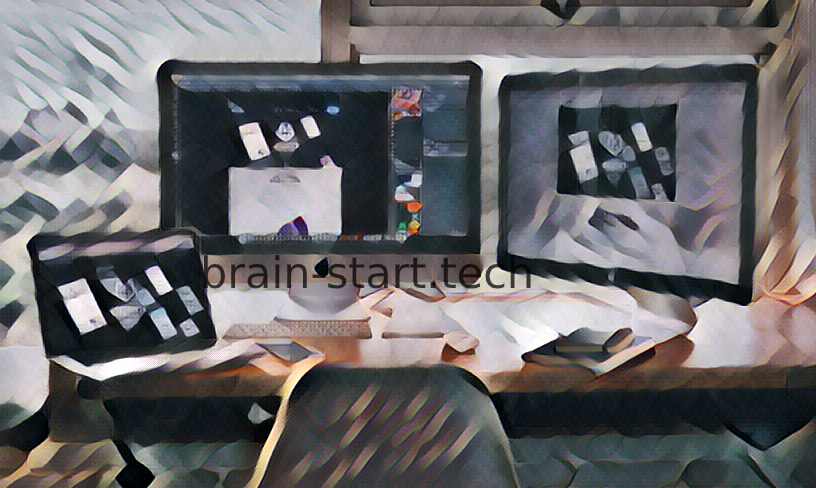How to take a screenshot on Xiaomi Redmi Note 10
Abstract:
- Simultaneously press Power and Volume down on your Xiaomi Redmi Note 10.
- Press Previous and Power buttons.
- Hold down the Power and Volume Up buttons.
- Hold down Power and Home.
- Use a screenshot application available for free on the Store.
- Check your screenshot on Xiaomi Redmi Note 10.
- Transfer the capture from your mobile to a computer.

All the news on Xiaomi Redmi Note 10 in our articles.
How to take a screenshot on Xiaomi Redmi Note 10
Taking a screenshot on your Xiaomi Redmi Note 10 can be very handy for saving a city map, sending your last notes in picture format or just making multiple backups.
We will see through this tutorial different methods to make it.
We will show you the native method of the Xiaomi Redmi Note 10 system, then the possible ways to take a screenshot via the manufacturer’s system. Finally, we will discuss the case of specialized applications to take screenshots.

We will conclude on how to find your screenshots in the memory of your Xiaomi Redmi Note 10.
Taking a screenshot using the native method of Xiaomi Redmi Note 10 on your Xiaomi Redmi Note 10
Since version 4.0 of Xiaomi Redmi Note 10, normally installed on your Xiaomi Redmi Note 10, it is quite simple to make a screenshot.

Our other articles on Xiaomi Redmi Note 10 can help you.
Indeed, all you have to do is keep the volume button down on the one hand and turn on the power button of your Xiaomi Redmi Note 10 on the other hand.
Be careful: press these two buttons at the same time as to not activate one or the other only.
It may be a bit difficult to do it on your Xiaomi Redmi Note 10 at first, but once the fold is taken, it should be easier.
Once these two buttons are pressed at the same time, you will see a short scene of the Xiaomi Redmi Note 10 system: it is confirmation that your screenshot has been done!
Take a screenshot via the system of the manufacturer of your Xiaomi Redmi Note 10
Caution, this method may not be available on your Xiaomi Redmi Note 10, depending on the version of software you have.
Normally, you need to keep pressing the start keys of your smartphone and the key to return to its main screen, located at the bottom of your Xiaomi Redmi Note 10.
You can surely take a screenshot from the ‘Option’ menu of your Xiaomi Redmi Note 10 also, accessible by pressing the power button.
On this menu you will see the possibility of taking a screenshot.
However, this feature may not be available depending on the operating system installed on your Xiaomi Redmi Note 10.
Take a screenshot on your Xiaomi Redmi Note 10 via a third-party application
Many applications available on the Xiaomi Redmi Note 10’s ‘Play Store’ can take screenshots.
For example, you can download the ‘Screenshot Easy’ or ‘Super Screenshot’ applications on your Xiaomi Redmi Note 10 to take screenshots.
Check users’ comments to get an opinion of each of the applications available for download.
You can set them to save screenshots to the memory of your Xiaomi Redmi Note 10 or to your SD card if you have one.
We do not detail the use of each application here.
To conclude: how and where to find your screenshots in Xiaomi Redmi Note 10 memory
Once the screenshot is done on your Xiaomi Redmi Note 10, it can be difficult to find it.
You will see it is quite simple when you know the procedure.
In the ‘Gallery’ menu, available on the main screen of your phone, you should have a folder containing screenshots.
To locate it is simple: the last captured image is presented in front of the file.
From there, you can delete, share or view your screenshots as you want.
We hope this tutorial has helped you to take screenshots on your Xiaomi Redmi Note 10.
To summarize: screenshot in Xiaomi Redmi Note 10
Screenshot support was added to Android in version 4.0 (Ice Cream Sandwich). In previous versions, some devices supported the screen capture function with one of the following combinations:
- Keep the Start button pressed + On,
- Keep the Back + Power keys pressed.
Screenshots can be taken at Xiaomi Redmi Note 10, depending on the model, by pressing "Volume Down" + "Power On", and saved in the "Screenshot" folder of the gallery after a short sound and visual effect.
In some devices that use Android modified perhaps in your Xiaomi Redmi Note 10; the combination of buttons and storage location may vary.
In addition, when a keypad is connected through USB-OTG, pressing the print screen button will take the screenshot.
There is no direct way to take screenshots programmatically in non-system applications. However, on most devices, applications can use the system screenshot function without special permissions.
Save screen on film in Xiaomi Redmi Note 10
The screen capture capability of some screen capture programs is a quick way to create instructions and presentations, but the resulting files are often large.
A common problem with video recordings in Xiaomi Redmi Note 10 is that the action can jump, rather than sink without problems, due to the low frame rate. Although they are getting faster and faster, common computers are still not fast enough to play back videos and capture them simultaneously at professional frame rates, i.e., 30 photos per second. In many cases, high frame rates are not required in Xiaomi Redmi Note 10. This is generally not a problem if you simply capture desktop video, which requires much less processing power than video playback, and it is very possible to capture at 30 frames/sec. This varies depending on the resolution of the desktop, the processing requirements for the application being captured, and many other factors.
Problems with copyrights or usage rights
Some companies believe that the use of screenshots is a copyright infringement in their program because it is a derivative work of widgets and other works of art created for the software. Regardless of copyright, screenshots in Xiaomi Redmi Note 10 can still be used legally under the fair use principle.